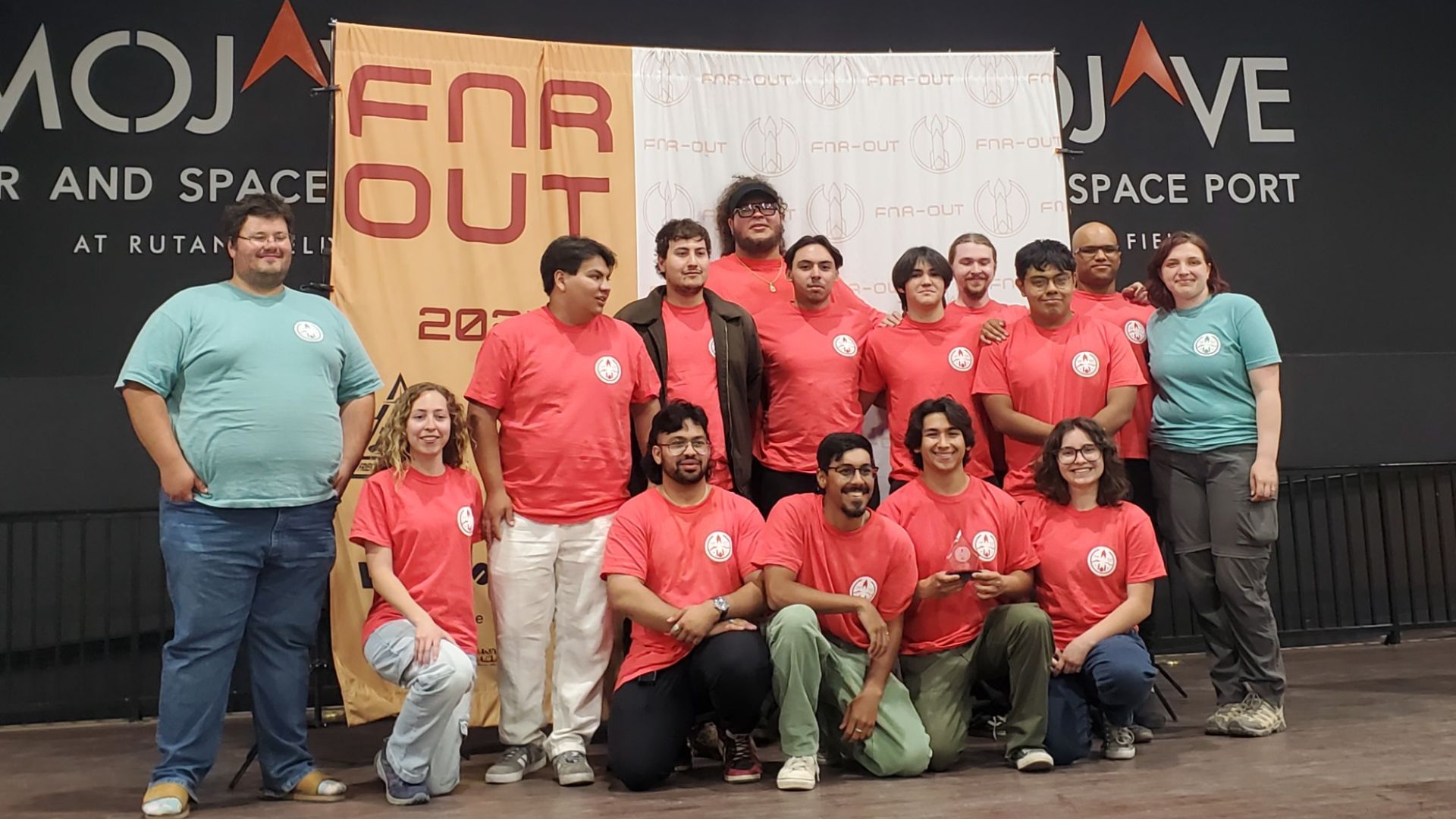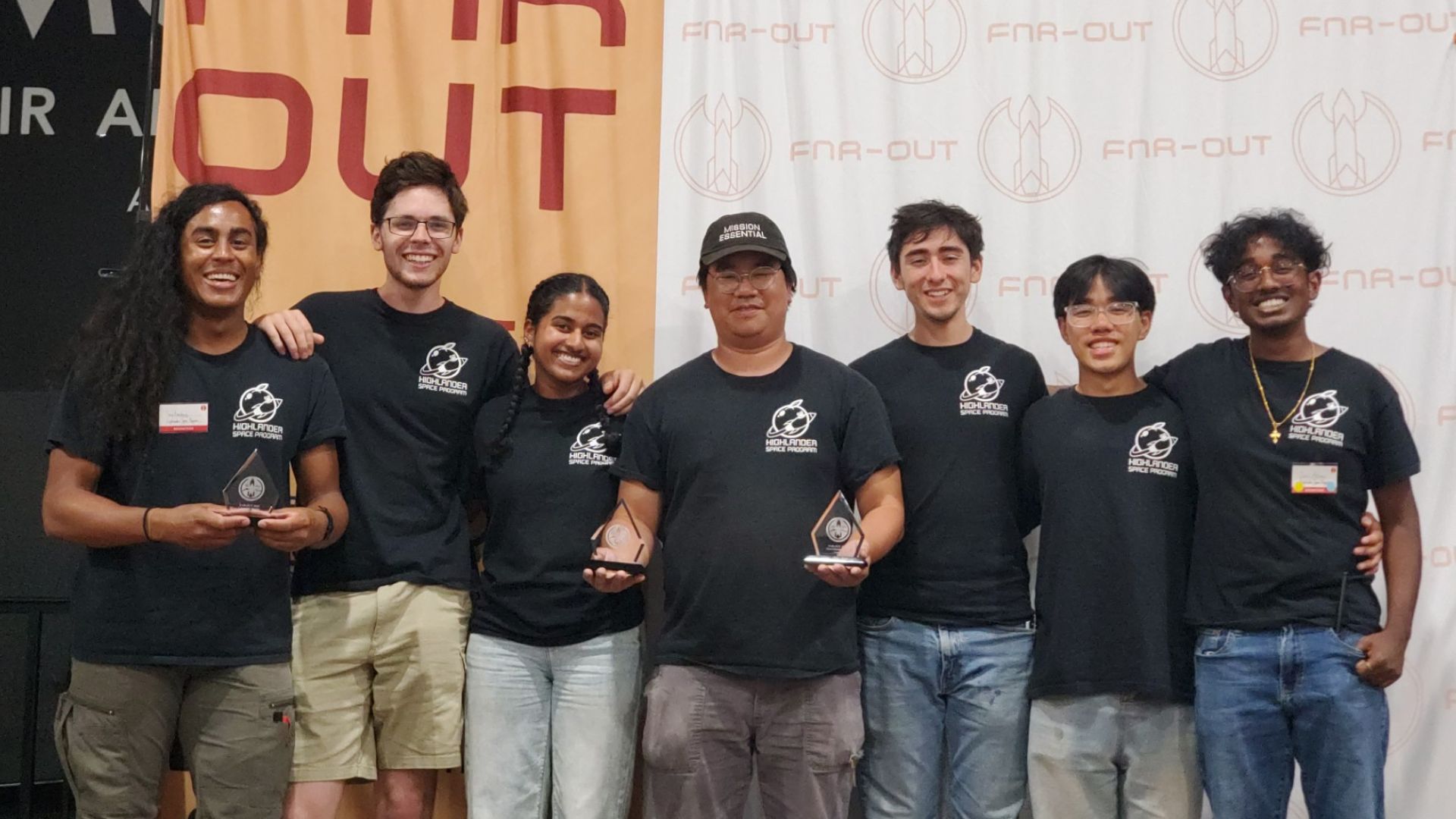The Norco College Rocketry team earned second place in its altitude category at the 2025 FAR-OUT rocketry competition, marking another historic milestone for the college’s growing aerospace program. Organized by the Friends of Amateur Rocketry (FAR), this annual competition is dedicated exclusively to student-built hybrid and liquid rockets.
The team’s liquid-fueled rocket, Star Rider, was successfully launched and recovered during the multi-day competition held May 28 through June 2 at the FAR site in the Mojave Desert. The achievement represents Norco’s first entry into liquid propulsion and builds on its legacy of innovation following a first-place finish in the hybrid category at last year’s competition.
“Our students continue to rise to the challenge,” said Lindsay Owens, Ph.D., assistant professor of physics and one of four faculty advisors to the team. “Many of our team leaders, including Ashlyn Jorgenson, Aaron Rockholt, and Karan Makker, returned this year after leading the hybrid rocket project in 2024.”
The competition challenges teams to launch their rockets as close as possible to pre-calculated target altitudes, also known as “contract apogees.” Teams present their designs during a conference at the Mojave Air & Space Port, participate in poster sessions, and interact with aerospace industry professionals through tours and presentations. The event emphasizes collaboration and innovation, providing students with a platform to showcase their engineering skills and creative problem-solving abilities.
Norco competed in Category A (apogees between 5,000 and 15,000 feet), coming in second only to the University of California, Riverside’s Highlander Space Program, which also won the Most Efficient Engine (Liquid) award. Notably, three of Highlander’s winning team members—Carlos Rios, Hitha Antony, and Chris Antony—are Norco College alumni who transferred to UCR after participating in last year’s winning Norco team.
“Congratulations on the FAR-OUT Competition!” said Norco College President Monica Green, Ed.D. “This is phenomenal. I love that our transfer students contributed to UCR’s success.”

The Norco College team consisted of 19 students spanning a range of STEM disciplines. In addition to the lead trio, the competition team included Chloe Gonzales, Jason Daniel, Nathan Taschner, Colin Thompson, Trey Armstrong, Nickolas Cabrera, Alyssa Berrezueta, Phillip Castellanos, Bryan March, Danny Hernandez, Dakota Muro, Ali Sulaiman, Sebastian Montero, Anthony Masiel, and Shirya Barrientos.
Faculty advisors who supported the project include Owens; Lana Borissova, assistant professor of mathematics; Bibiana Lopez, associate professor of mathematics; Weining Cui, assistant professor of chemistry; and Patricia Gill, recently retired STEM program coordinator.
“What you all did is truly amazing,” said Mark Hartley, Ed.D., dean of student life. “I got chills watching the launch video of Star Rider. And to hear that we were second only to our own alumni was equally thrilling.”
This year’s event drew teams from across the country and internationally, with over 240 participants attending. Other top-ranking institutions included Columbia University, the University of Tennessee, Polytechnique Montréal from Canada, and the Poznań University of Technology from Poland.
The FAR-OUT competition takes place annually at the FAR launch site outside Randsburg, California, and includes static-fire tests, rocket launches, and educational sessions. FAR, founded in 2003, supports amateur and student rocketry with a focus on STEM education and safe launch practices.
For more information on the competition, visit faroutlaunch.org.
